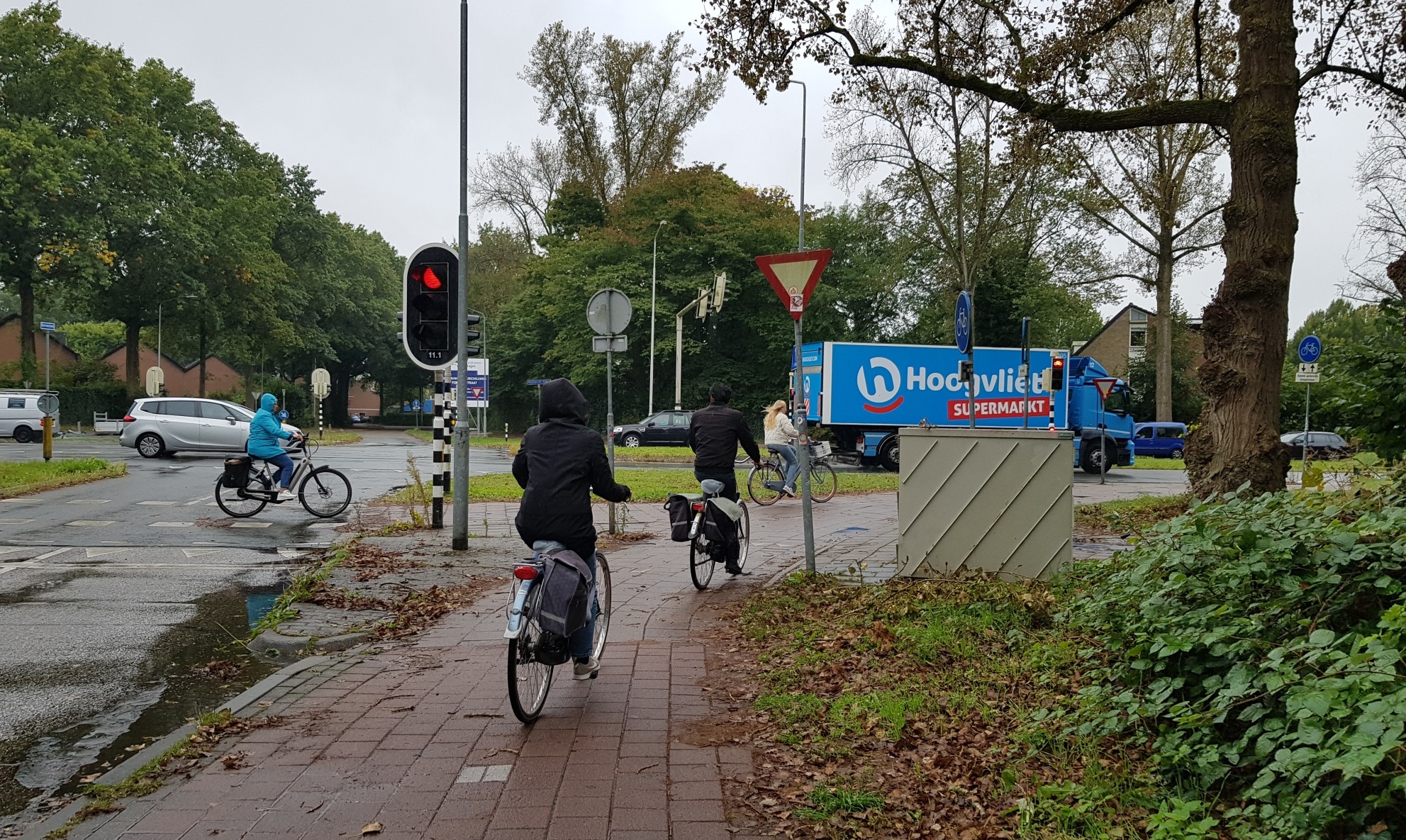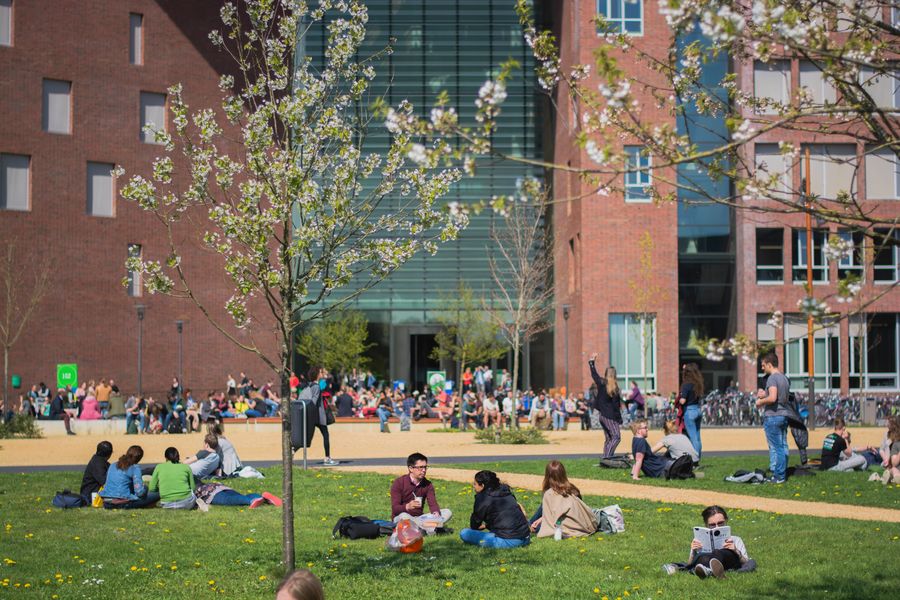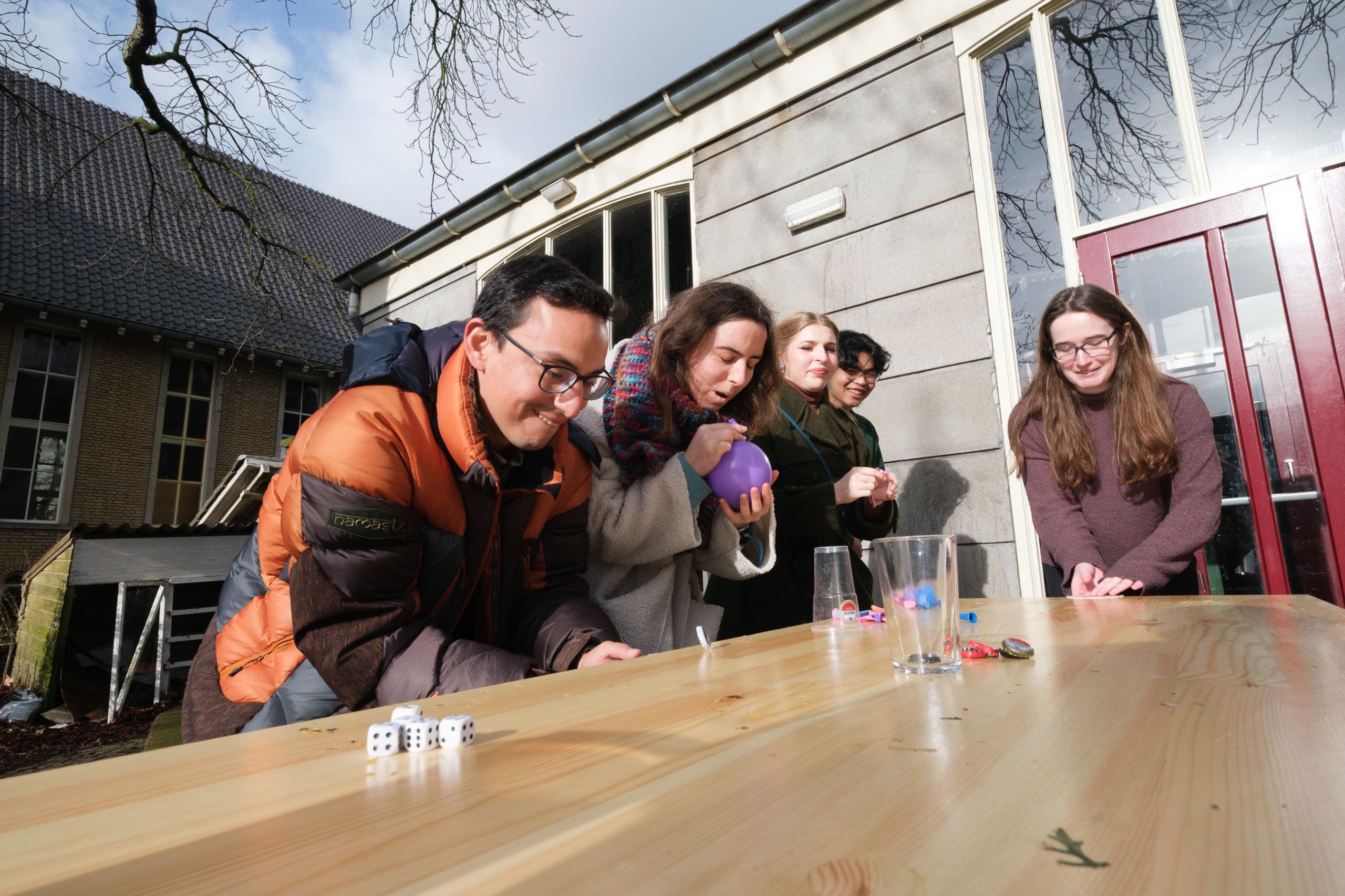They can’t cycle, they sway and are a danger to other drivers and cyclists. There are some common biases about international students and their cycling abilities. Not entirely unfounded, a study conducted by TeamAlert found. TeamAlert is a foundation that focuses on reducing the number of traffic deaths among youths. Cycling in Dutch traffic poses a risk for international students.
TeamAlert surveyed 1500 Dutch and international students about their experiences as cyclists. The survey focused on the differences between these two groups. These differences abound. No less than eleven per cent of the internationals reported having been in a cycling accident in the last month. This percentage is three times that reported by their Dutch peers. Over one-third of the internationals narrowly escaped an accident.
Even for accomplished Dutch students, cycling is not without danger. One in four narrowly escaped accidents in the last month. In view of the cycling behaviour among both student groups, this is hardly surprising. Half of the Dutch students admitted having run a red light at least once in the past month, while almost half cycled without the required lighting, and over half cycled on the sidewalks on occasion.
Alcohol
Cycling under the influence of alcohol (two-thirds) of drugs (just under half) also occurred frequently. One-third incidentally cycled in the lane for oncoming traffic, and almost all occasionally listened to music while cycling. International students are every bit as adept at risk-taking behaviour while cycling as their Dutch peers, although they rarely cycle while inebriated.
The fact that Dutch students suffer fewer accidents despite their dangerous cycling habits can be attributed to their better cycling skills, according to the investigators. Only six per cent of the international students involved in the study cycled on a daily basis in their home country. Dutch children take the National Traffic Exam as part of their primary school curriculum. One of the recommendations made in the study is to have international students take a similar exam, voluntarily or mandated.
W’ meet U
Additionally, the researchers recommend cycling lessons to improve cycling skills, refresh the knowledge of traffic rules and improve risk assessment. WUR has been offering such lessons for quite a while. Much attention was paid to cycling in the Netherlands during the AID, as well as during the W’ meet U days last August. These cycling lessons, which are organised by Sports centre De Bongerd, will be repeated this winter.

 Photo Roelof Kleis
Photo Roelof Kleis 


Why is this article focusing on policy for the victims, and not about policy for the main cause of road danger? In most cases, cyclists – including staff and students – are hit by a motorist. See the map below for a summary of news reports from recent years:
https://www.roaddanger.org/map?lat=52.00360413993204&lng=5.649021527671749&zoom=11.876519798506651&country=UN&period=all
Of course we have to learn to cycle properly, but our university, in contrast to its own policy ambitions (reduce car traffic), makes political choices that encourage car mobility (free parking, BeterBereikbaarWageningen, opening barriers for car drivers at Noordwest, incentive weeks for cycling that we know do not work). Everything you pay attention to grows and as a result we can experience fear every day, experience serious forms of violence, or die at or on the way to campus. These are not accidents, but consequences of a sum of political choices. It is up to journalists to focus on the causes of road danger. And to ask more critical questions about the political choices that our administrators make. And to no longer talk about accidents (oh what bad luck), but crashes.
This groundbreaking study probably found that people with more cycling experience tend to cycle better (wow). However, they or the journalist preferred to frame it as Dutch people cycling better than ‘internationals’.
It must be a slow news day at Resource for Mr Kleis. The study that the article refers to (no link is provided by Mr Kleis) was published in April 2024, is not a peer-reviewed study, does not have a representative sampling design, and simply measures subjective individual experience rather than any conclusive data about actual cycling incidents/injuries – https://teamalert.nl/media/gnddivud/rapportage-internationale-studenten-2024.pdf.
The question is why Mr Kleis and Resource choose to publish this article now, based on a random 6 month old survey. It’s a shame that Resource journalists write such poorly framed and divisive articles that can only exacerbate feelings of unbelonging for international students, particularly in the current political climate.